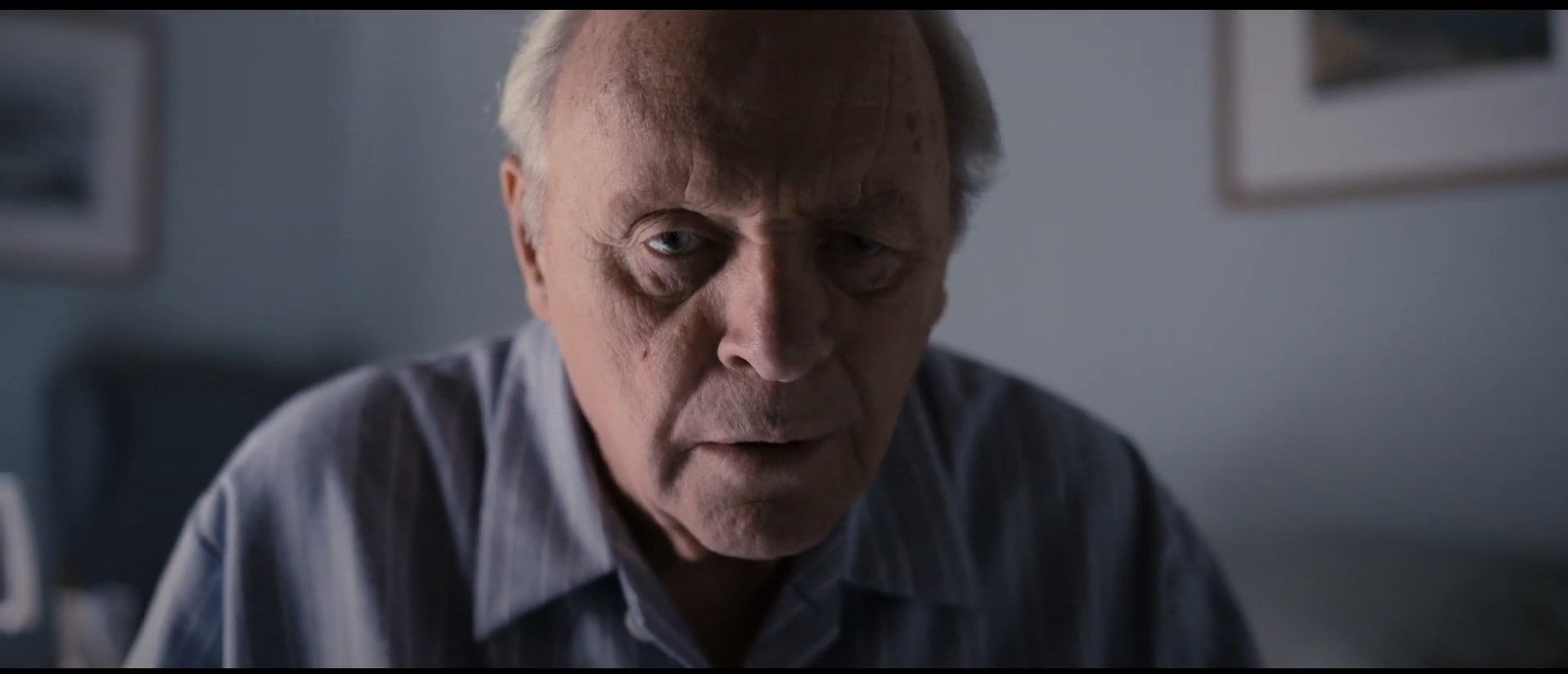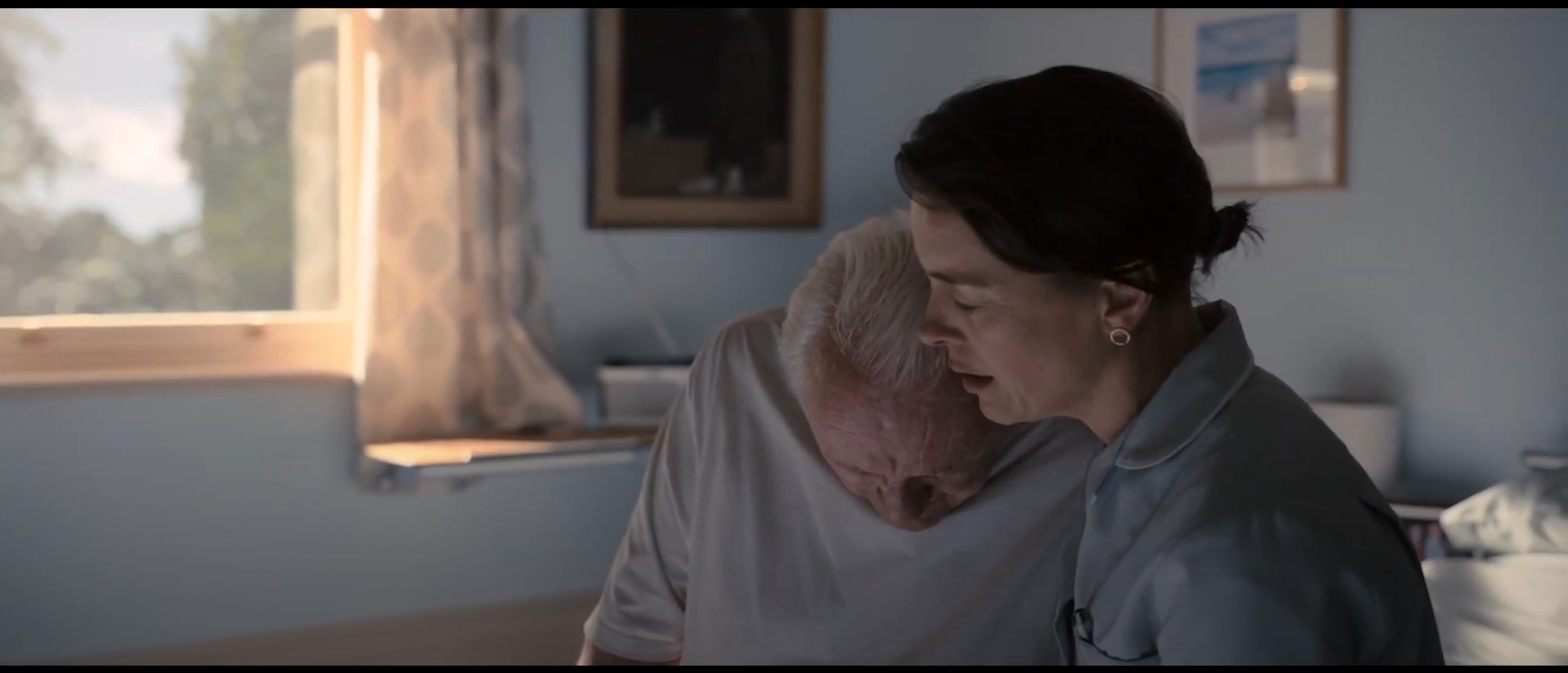The film “The Father” is a story that explores the changing sense of self and identity due to dementia, asking deep philosophical questions about identity, self, and human existence through the confusion of memory and distortion of time caused by dementia.
“The Father” is told from the point of view of Anthony, a father who suffers from dementia in his later years, and presents a non-linear organization of time and a blurred line between reality and fantasy. The film leaves a deep impression on the audience by realistically and movingly depicting the challenges of dementia and aging, and the confusion of family relationships, environment, and identity. Along the way, Anthony’s temporal experience is not clearly defined, and as his past memories and present perceptions become intertwined, he finds it difficult to make sense of his existence and environment. Through Anthony’s point of view, the director conveys to the audience the experience of time’s distorted perception and reality, and makes us feel his inner turmoil.
In particular, the film shows that the memory confusion and fragmentation of time that Anthony experiences is not just a symptom of dementia, but also shows how imperfect and fragile human perception and memory are. In doing so, the audience gains a deeper understanding of the profound impact of aging and dementia on an individual’s life and identity. In addition, the intersection of reality and memory emotionally emphasizes Anthony’s internal conflicts and discrepancies with the outside world, and portrays the complex emotions and realities of aging, including loss and isolation in old age, difficulties in communicating with family, and the difficulties of aging. These complex emotional lines deepen the movie’s themes and make the audience reflect on their own identity and the meaning of existence.

I think this movie asks the audience philosophical questions about the complexities and dilemmas of dementia and aging, the relationship between memory and identity, existence and self, etc. Should we see the loss of memory and confusion of time due to dementia as just a confusion of identity and isolation? According to Bergson’s philosophy, “pure duration” refers to a genuine experience of time that is captured by intuition, as opposed to the usual concept of time. It refers to a subjective, psychological reality in which the world of pure duration is the realm of the true self, of free personality, and is itself. It also emphasizes that past, present, and future are not precisely separated, and that past emotions and present thoughts about the future are intermingled. This characteristic of time is called duration by Bergson, and he believes that true time is a living, moving, and creating time that changes inwardly. From Bergson’s perspective, then, Anthony’s state of dementia, in which the present and the past coexist in a confused way, and the fragments of time can be seen as a continuous experience that changes and flows inwardly. Also, if the experience of time captured by intuition is the true self, then from the perspective of pure duration, Anthony’s experiences and changes in the realm of self and personality can be seen as a process of finding the true self and free personality.

However, this philosophy and question directly contradicts the view that the persistence of memory shapes identity. According to this view, memory plays as important a role in shaping a person’s uniqueness and identity as their appearance, through the formation of their tastes and values, the expansion of their perceptions and appreciation of the events that shaped them, and their knowledge and interrelationships. In other words, identity is shaped by memories of past daily experiences, interactions with others, and cultural influences, and it is through these memories that individuals are able to maintain a sense of continuity as they influence their current behaviors, choices, and beliefs. From this perspective, the person with dementia is not the same as the person who had dementia before the onset of dementia and the person who has dementia after the onset of dementia because the loss and confusion of memory makes past memories incoherent and makes it difficult to maintain a sense of self and future direction.
These concerns and questions are closely related to philosophical discussions about how identity is formed and how the existence of the “I” within the self is realized, such as John Locke’s blank slate theory and Freud’s unconscious psychological processes. However, beyond that, the changes in identity that occur in situations such as dementia further complicate the understanding of self and existence from a philosophical point of view, and the movie can be seen as offering a deep reflection on the nature and meaning of human beings.
 I’m a blog writer. I want to write articles that touch people’s hearts. I love Coca-Cola, coffee, reading and traveling. I hope you find happiness through my writing.
I’m a blog writer. I want to write articles that touch people’s hearts. I love Coca-Cola, coffee, reading and traveling. I hope you find happiness through my writing.